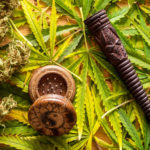Delta-9-tetrahydrocannabinoid Drug Test Results May Help Patients

Delta-9-tetrahydrocannabinoid Drug Test Results May Help Patients
The Delta 8 and 9 Thc Teas tested by Independent Lab Accredited by the National Institute of Drug Administration (NIDA) has become a hot favorite among consumers looking for a healthy alternative to coffee. Since coffee is primarily a stimulant, many users have been looking for alternatives that do not contain caffeine. Many people also have specific health conditions or other issues that would make coffee a difficult choice. However, many doctors, including those at the American Association of Drug Addiction counselors, believe there are strong arguments in favor of the use of the delta 8 and 9 the Teas.
One of the reasons: why the Delta-8 and 9 Thc Teas are more well liked than caffeinated alternative is because they contain natural antioxidants and are therefore considered healthier. They also test less often and thus are ideal for weight loss efforts. The two chemicals in the Delta-8-9-Tetrahydrocaffeine act as an effective natural drug that may help reduce nausea and motion sickness associated with general anesthesia. People trying to lose weight are particularly encouraged by the results of these two drugs in test results for using Delta-8-9-Tetrahydrocaffeine for weight loss.
In addition to weight loss: there are other benefits of Delta-8 and 9-Thc-containing natural supplements such as Delta-8-Tetrahydrocaffeine and its related compounds and CBD products. Both of these substances have been found to have similar healing qualities and relieve pain and inflammation when used topically or taken orally. Doctors often recommend the use of such pharmaceuticals as a way of providing patients with the option of healing without the hassle and expense of prescription drugs. Unfortunately, the discovery of delta 8 thc drug test results for medicinal use has not yet been published, but it is expected that the substance will soon be made available to assist those with medical conditions or who suffer from side effects of marijuana use.
The question: that many health care professionals have is whether or not the Delta-8-THC drug test results for medicinal use will actually turn up anything on a drug test for marijuana use. Since CBD is not considered as a dangerous drug by most national and state laws, it would not appear on a drug test for marijuana either. However, some medical professionals do believe that it is important for potential patients to make sure that the substances in question, including CBD, are indeed safe and do not counteract the positive effects of medicinal marijuana use. For this reason, doctors often encourage their patients to take CBD along with a doctor-prescribed medication.
One particular substance: that doctors may consider as particularly concerning is Delta-9 Tetrahydrocaffeine. This substance has been found to increase brain activity, energy, stamina, and sensitivity. It also has been found to reduce fatigue and help patients suffering from depression. Because of these positive benefits, it has been found to be extremely useful in helping people who are experiencing certain ailments and who are under a lot of stress. However, it can also raise blood pressure levels and cause serious side effects. For this reason, it is highly recommended that people who take delta-9-THC should avoid driving or do anything else that could potentially cause them to exceed the maximum blood pressure level that is set during treatment.
People who smoke cannabis or ingest CBD may: find themselves subject to random drug testing. When this occurs, doctors may order a random drug test to find out whether or not a patient is under the influence of their own medicine. While doctors are not necessarily concerned with how much a patient smokes or how much they ingest, they are looking to see if the body's own systems are regulating itself properly when there are substances present in the system that seem to override the beneficial systems. The Delta-9 THC and CBD components of cannabis are known to interact in the body and brain, resulting in a reduction in sleep, poor judgment, and drowsiness.
In these cases, doctors often request a drug test on patients who are taking one or both of these medications.



